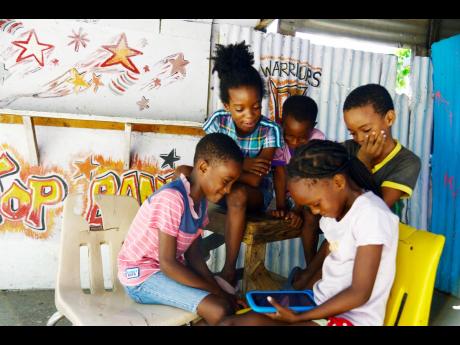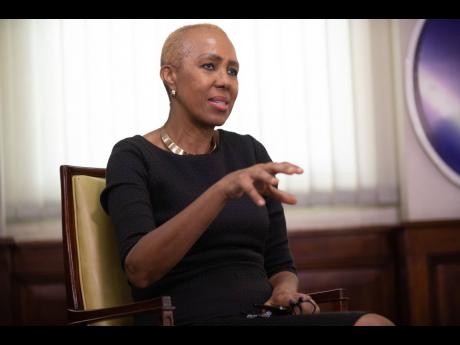Laptops scarce - As Government cans face-to-face classes, new challenge emerges
WESTERN BUREAU:
Having run into headwinds of opposition from principals and other education stakeholders, the Holness administration has backtracked on its bullish plan to phase in face-to-face classes in October amid a monthlong spike in COVID-19 deaths and infections.
But the Government’s pivot to greater reliance on the online learning for the short to medium term has amplified another smouldering problem – the shortage of laptop computers worldwide.
The long-gestating distribution of tablets was intended as supplementary to learning in schools, but has become the main and, in some cases, only interface between teachers and students. Manipulation of Zoom and SmartTerm portals and the uploading of material for evaluation has become more tedious and difficult on handheld devices.
User handling has been punishment to many students and teachers out of school for the last 193 days, said president of the Jamaica Association of Principals and Vice-Principals, Linton Weir, during a recent Gleaner Editors’ Forum.
“The tablets that the teachers have received may need to be moved up to laptops, but we are having a serious challenge securing them now,” said Weir explaining that the schools were doing their own procurement.
Lenovo, HP, and Dell, the Big Three of computer producers, reported to United States school districts in August a supply deficit of five million laptops as a global vacuum widens.
Weir’s concerns were echoed by interim president of the National Parent-Teacher Association, Mitsie Harris-Dillon, who is urging the Government to facilitate duty waivers for not only computers but also smartphones.
But that advocacy appeared to find no support from Prime Minister Andrew Holness, who said at a Jamaica House briefing on Tuesday that his administration was averse to a loosening of fiscal rules on taxation policy. Holness argued that that strategy would allow persons not needful of subventions to benefit.
The prime minister said that the Government preferred to offer front-up funds to targeted groups through welfare programmes.
Harris-Dillon also called for a delay in the physical reopening of schools, noting that the country was not in a position to have face-to-face classes until at least January 2021.
Her calls were answered by Minister of Education Fayval Williams on Tuesday, who withdrew the option of in-person classes in the short term. Williams did not give a timeline for the return to physical classes, saying that she would be guided by advice from the health ministry.
In the meantime, Williams said some 25,000 tablets were distributed to teachers across the country. Tablets will also be distributed to approximately 110,000 students from grades four to six and 113,000 from grades 10 to 13.
The ministry’s three-pronged approach to teacher includes online learning, classes by television and radio, and the provision of printed material to complement textbooks for students unable to access the digital platform.
“Online students will remain at home accessing the virtual environment. Their lessons will be recorded, so they can access whenever they need to,” Williams said.
The education minister said that 20,000 teachers had been trained on the cloud-based system while Television Jamaica, CVM, and ReadyTV would offer TV classes.
Williams said that she is expecting to bolster the efforts with connectivity in community centres and churches, while announcing that the final draft of the ‘Bring Your Own Device to School’ policy should be ready in weeks.
This initiative will see the Government providing loans to parents who will need to purchase equipment for their children. Williams is suggesting a 24-month payback period.
The education minister said it was urgent to get all students back to the learning mode, citing the sombre warning of Professor H. Orlando Patterson, chairman of the Education Transformation Commission, that schools were in crisis.


